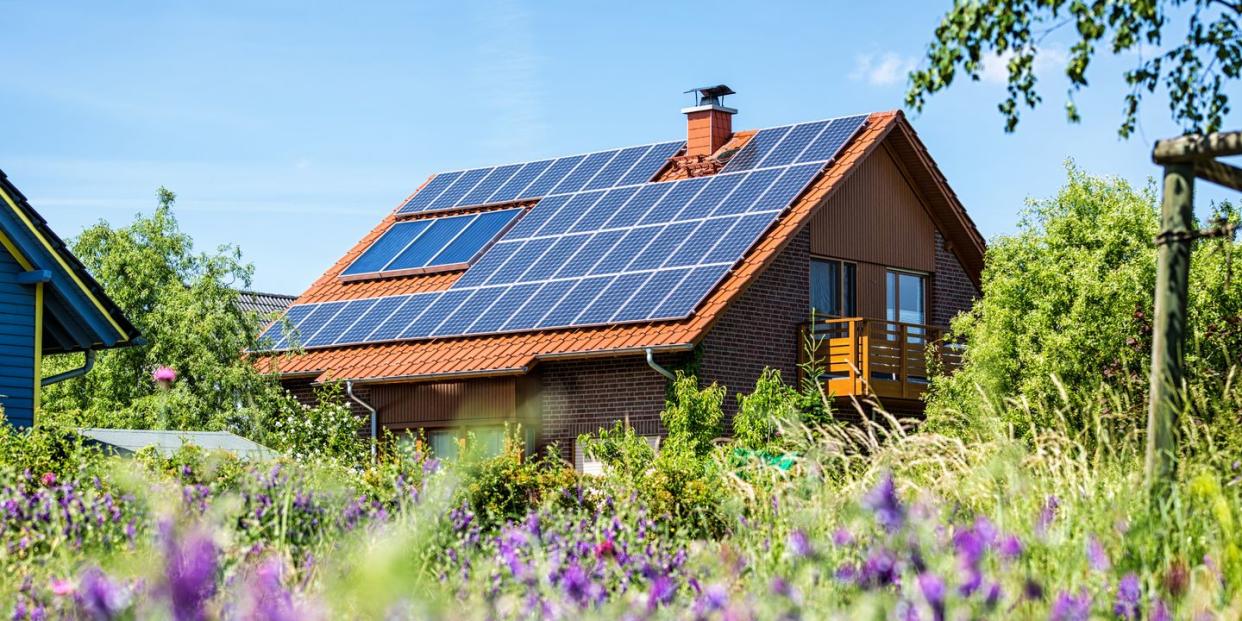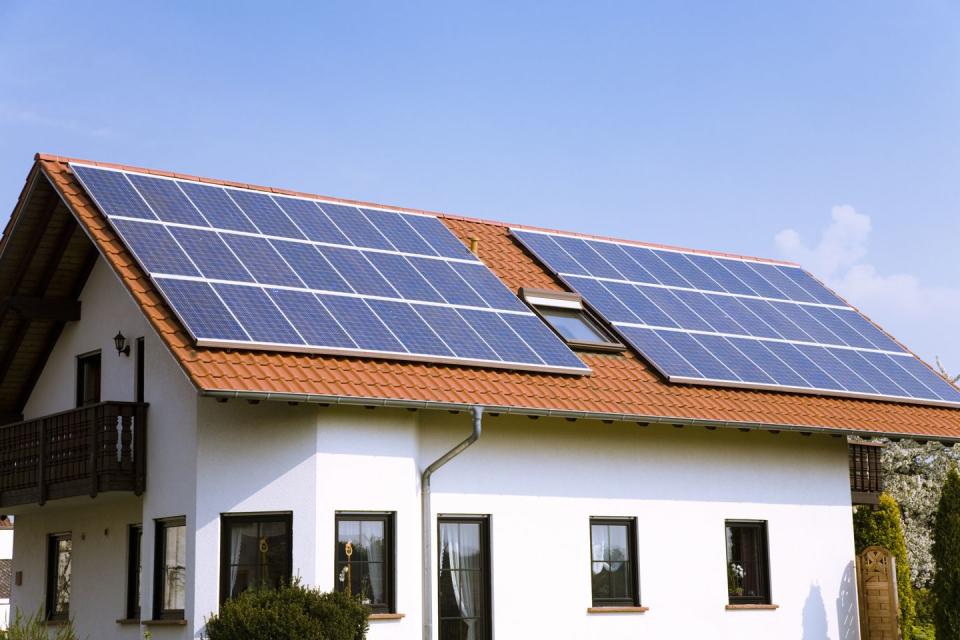The Biggest Draw of Solar Panels Isn’t Their Energy Bill Savings

As we shift away from traditional gas and petroleum energy sources, more and more people want sustainable homes powered by clean energy. Your neighborhood might not be equipped to set up its own wind turbines or hydropower plant, but there's one method that works pretty much anywhere: solar. Solar panels absorb the sun's rays and turn the solar cells into functional energy. It's the future—just ask the Scott Brothers.
So why don't you see more solar panels in your neighborhood? People seem to be hesitant about the potential return on the investment for solar—but they shouldn't. "The biggest misconception is that it's more of a hassle than it's worth," says Ellen Kinney, vice president of digital for the solar panel maker SunPower. "The cost is a big barrier, I get that. But clean energy is increasing in popularity for a reason. People are growing more eco-conscious and concerned about reducing their personal energy footprints." In fact, solar panels start to pay for themselves in six to 10 years.
Curiosity in solar power has spiked ever since President Biden introduced the Residential Clean Energy Credit, which allows taxpayers who install solar (or other approved clean energy equipment) to recoup 30 percent of the cost in the form of a federal tax credit. Read on to learn more about solar panel pros and cons, from their upfront costs and installation concerns to their benefits for your home and your wallet.
How Much Do Solar Panels Cost?
The Product
On average, a starter set of new solar panels will run you around $20,000. That's a major investment, and retailers know it, which is why many of them offer loan programs or even lease agreements to help spread out the cost. The good news is that it includes installation, so you won't be getting any surprise invoices months down the line.
The Upkeep
Overall, solar power maintenance is quite minimal unless there's a problem or the panels need repair. On average, solar panel upkeep and annual maintenance cost homeowners just under $500 per year. A mandatory annual inspection costs $150, and you'll want to have the system cleaned at least twice a year to ensure proper functioning. Some states, like Connecticut, have passed laws to make solar panel installation simpler by providing free government inspections. Plan to maintain your system for 25 to 30 years.
The Pros of Solar Panels
Lower Utility Costs
With an average savings of $1,500 per year on energy bills (around $125 per month), solar panels can cut homeowners' costs drastically. Kinney says that's what draws most people in: "Customers are more conscious of the environment these days, but the biggest factor for them, still, is reducing their household costs." Especially now that electronic vehicles are on the rise and homeowners are doing 80 percent of their charging at home, Kinney says people want to optimize smart home systems to help them save on energy.
Extra Energy You Can Sell
With a standard electrical bill, you pay for the power you use. With solar panels, you store energy throughout the year, and if you don't use as much as you store there's energy left over. When that happens, depending on your area, you may be able to sell that unused energy back to your town's grid. That further increases the monetary savings households can achieve with solar power.
Backup Power
Solar storage boxes can also function like a generator. Whether your area is prone to storms or power-saving protocols, you can turn on the storage box whenever you need a backup. There are different sizes of storage solutions based on the square footage of your home and how much energy you use—something a retailer will analyze and determine when you purchase a system of panels.

The Cons of Solar Panels
The Aesthetic
Solar panels' biggest downside is an unfortunate lack of curb appeal. Because the best place for them to go is often on the front of the roof, people don't want them to detract from their home's good looks. The panels can sometimes be placed on the back of the roof, but it depends on sun exposure; the front often has better access to the necessary equipment and hookups too. North- and south-facing homes will have better exposure and sun retention than east- or west-facing homes or homes that get lots of shade.
The Upfront Cost
At an average cost of $20,000, the one-time expense of installing a whole-home solar panel system is the primary barrier to entry for many homeowners. There are smaller systems and financing options, but buying solar panels is the equivalent of buying another car—not a purchase most people can make on a whim.
The Permits
You can tackle most home improvements—painting, gardening, minor interior renovations—without your municipality's permission. Installing solar panels, however, requires a proper permit. According to the solar product retailer Unbound Solar, homeowners are required to file a building permit and an application for interconnection, which allows your solar system to connect to your area's existing utility grid. Permits cost money too.
Are Solar Panels Worth It?
If your area allows them, your home is a good candidate, and an analysis of your energy costs and output suggests you'll save money, the short answer is yes, solar panels are worth the perceived hassle. Not only can the devices save you $1,000 or more per year on utilities, but they can also keep your home humming in the event of a power outage.
You Might Also Like

